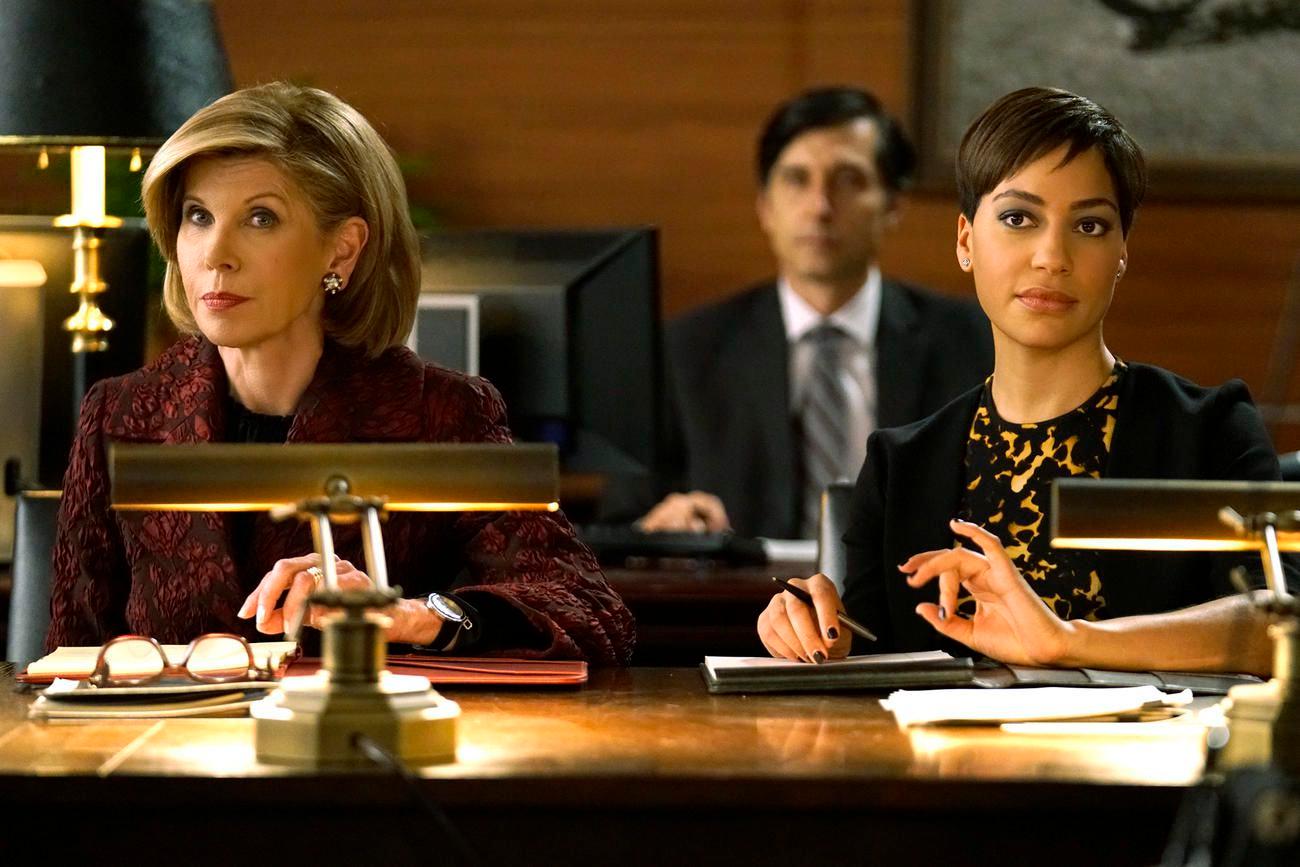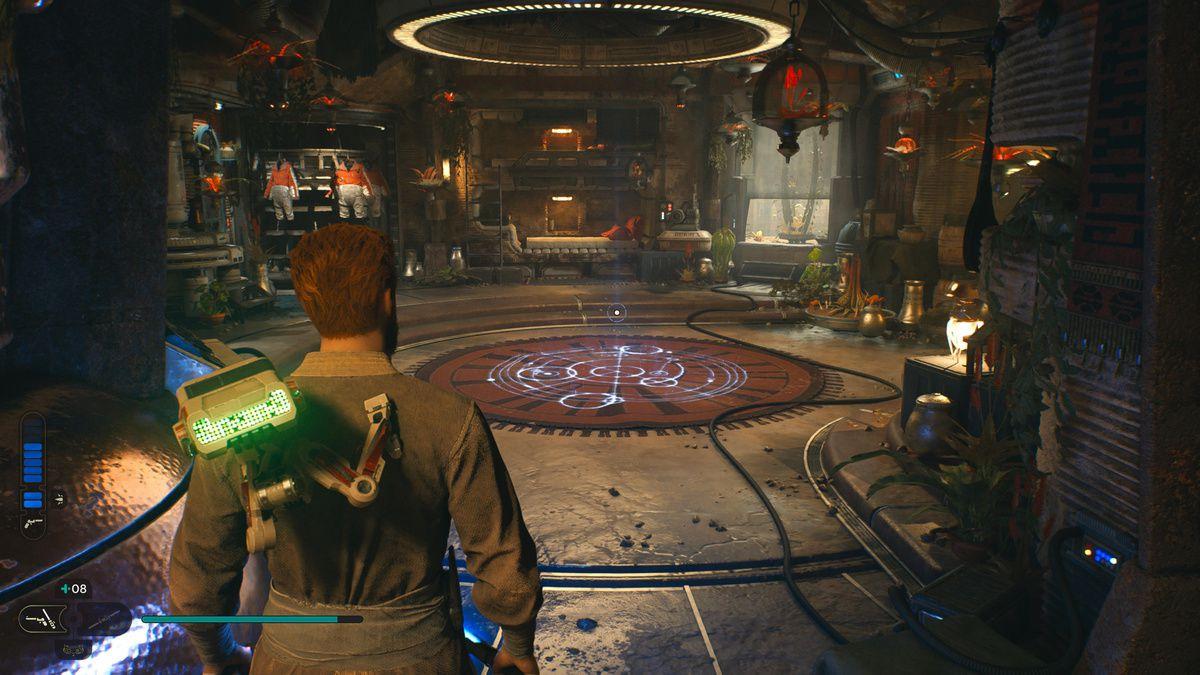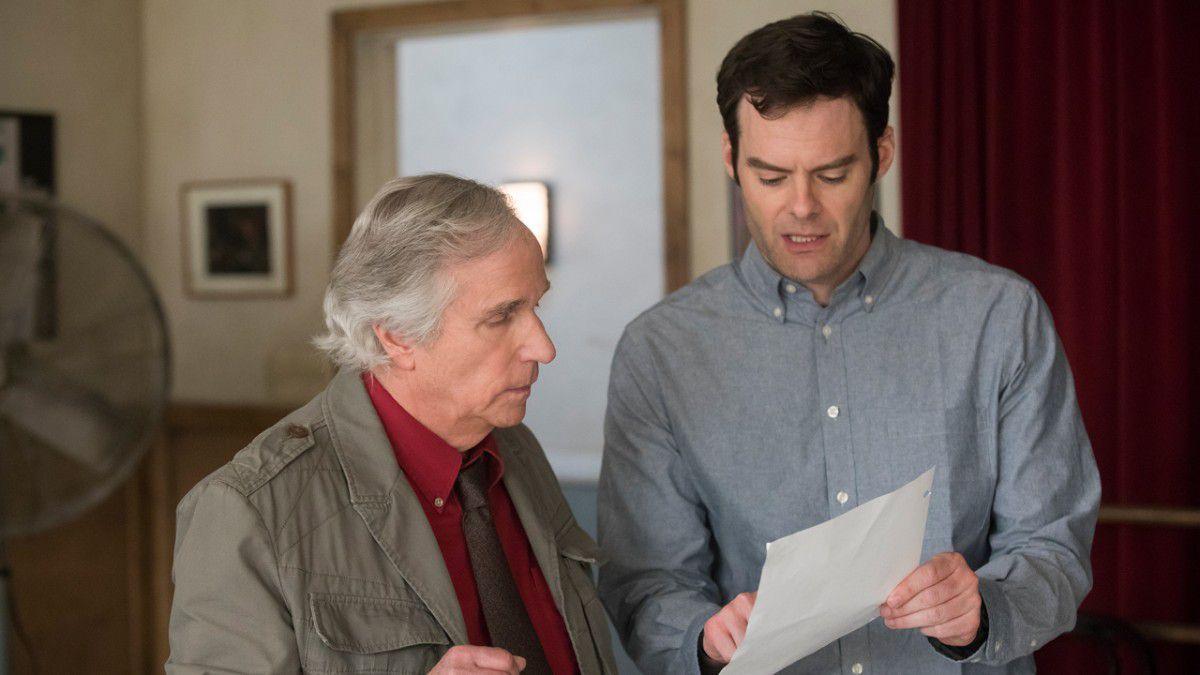In the absence of a grand unifier like Game of Thrones, the television ecosystem in 2018 has seen smaller series flourish, established players hit their stride, and unlikely concepts work against all odds. Prestige arbiters like HBO and FX have excelled as usual, but so have Syfy, CBS All Access, and YouTube Red. Explorers explored, assassins assassinated, Vanderpumps … Vanderpumped. In other words, there’s not much that unifies 2018’s strongest series to date except that they’re great, which is as a diverse and flexible medium like television should be. Even narrowing the list down to 10 involved some painful omissions (sorry, The Americans), but what’s left ranges from reality to extraterrestrial, pitch black to effervescently light. Summer is traditionally a down time for the small screen, but there’s plenty to catch up on before the fall kicks into gear. Start with these highlights of the year in TV so far.

The Good Fight
CBS doomed the most relevant show on television to permanent obscurity by stranding it on the network’s All Access streaming service. With the phenomenal second season of The Good Fight complete and ready to binge, however, I can think of few better uses for a weeklong free trial than marathoning the only show to successfully capture the feeling — not just the substance — of these strange times our nation is in. Married Good Wife creators Robert and Michelle King have channeled all their rage, despair, and, yes, amusement at the Trump administration into the goings-on at historically black Chicago law firm Reddick Boseman. The result is a second season that’s sharp and angry, but also funny, dreaming up fiction that’s just as strange as truth. Christine Baranski’s typically unflappable Diane Lockhart becomes an avatar for liberal disorientation: microdosing hallucinogens, toting a gun in her purse, watching the pee tape, running afoul of ICE. She manages to come out the other side with her resolve strengthened rather than broken, capping off a season that’s cynical, enjoyable, and just the teensiest bit inspirational. — Alison Herman
The Terror
The Terror is another entry in the long-standing Humans vs. the Elements genre, adapting the real-life British nautical expedition gone wrong with the supernatural twist provided by Dan Simmons’s fictionalized historical novel. And while there is a seemingly tangible threat looming in the Arctic’s harsh, alien landscape — the Tuunbaq, a creature of Inuit mythology hunting these men for months without end — the real, ahem, terror comes from the hearts of men.
David Kajganich’s series is a slow burn, letting its explorers (spoiler) gradually succumb to starvation and lead poisoning, their suffering further aggrandized by the strictures of the British Royal Navy’s hierarchy. (The captain, in his ill-fated hubris, is the reason the men get trapped in the ice to begin with.) It is exceptionally bleak television, but there is an ethereal beauty to seeing what happens when mankind is trapped at the very edge of the world, stripped of every impulse but survival. The Terror is returning for another season on AMC — obviously not following these men, who are super dead — with an “uncanny specter” following a Japanese American community during World War II. Sign me up. — Miles Surrey
Billions
Somewhere along the road, the feud between bootstrapped hedge fund baron Bobby “Axe” Axelrod (Damian Lewis) and blue-blood U.S. Attorney Charles “Chuck” Rhoades (Paul Giamatti) transformed into one of the finest ensemble dramas on TV. Over three seasons, Billions has deepened its bench into a force formidable enough to match, if not overshadow, its leads. After assisting the show in its ascension from good to great in Volume 2, nonbinary finance whiz Taylor (Asia Kate Dillon) completed their transformation from valued deputy to full-blown antagonist this year, as did Chuck’s respected protegé Kate Sacker (Condola Rashad). Villains like Russian oligarch Grigor Andalov (John Malkovich) and Jeff Sessions stand-in Jock Jeffcoat (Clancy Brown) gave the show momentum after Chuck and Axe forged an uneasy truce. Even the truly loathable Ari Spyros (Stephen Kunken) turned into a valued utility player, the scapegoat to whom the viewer can always point and say, “Sure, I’m rooting for a bunch of objectively awful people, but at least they’re not that guy.” It all adds up to the rare hour-long show deep enough to earn those 58 minutes a week — and fun enough to look forward to each Sunday night. — Herman
The Expanse
In May, the Syfy series was canceled despite great reviews — mostly because of an antiquated distribution deal between Syfy and the show’s production company, Alcon Entertainment. Then the internet sprang into action: For a show centered on space exploration, Expanse-heads literally sent a spaceship model into space, among other things. Amazon, with its new focus on securing its own version of Game of Thrones, should be an ideal new home for the series.
But all the cancellation-revival hoopla has overshadowed the third season, and that’s a shame: The Expanse has continued to find exciting new gears as it propels its plot forward, and has never been better. Long-simmering conflicts between different factions of the solar system — humans living on Earth, Mars, and those around the asteroid belt — have been put on hold as humanity forms a unified front against the mysterious protomolecule. (The protomolecule is to The Expanse what the White Walkers are to Game of Thrones.) Also, there’s a wormhole now. You won’t find better small-screen sci-fi anywhere else. — Surrey
American Crime Story: The Assassination of Gianni Versace
No series this year has a closer relationship between its form and its function than The Assassination of Gianni Versace, the second volume of Ryan Murphy’s FX anthology drama, American Crime Story. Written entirely by Tom Rob Smith, the nine-episode season tracks the murders of the world-famous designer and four other victims by Andrew Cunanan (Darren Criss), a gay man who envied Versace’s lifestyle but lacked any of the positive qualities that earned it. Assassination disarms the audience by starting where many assumed it would end, with Cunanan shooting Versace on the steps of his South Beach mansion. Smith then moves backward in time and broader in focus than the celebrity who serves as its Trojan horse, giving the three other gay men who died at Cunanan’s hands their own extended eulogies. Assassination is one of the more damning portrayals of cultural and internalized homophobia ever dramatized; by withholding an origin story for Andrew until the very end, the show throws the spotlight not just on his victims, but on the society that created him. No wonder it didn’t become a smash hit. — Herman

Killing Eve
Killing Eve is one of the biggest word-of-mouth sensations in recent TV history — heck, it was the passion of my esteemed colleagues that convinced me to begin a binge a few weeks into its run. Killing Eve is a delicious blend of espionage, stylish costumes, vacation-worthy European trysts, sexual tension via continental pas de deux, and acclaimed thespian Fiona Shaw saying very silly things while very deadpan. Along with a standout performance in the otherwise underwhelming Han Solo movie, series creator Phoebe Waller-Bridge is (deservedly) having herself a moment. Television with great performances and subversive functions that doesn’t take itself too seriously — if you’re reading this and haven’t watched Killing Eve yet, what are you waiting for? — Surrey
Atlanta: “Robbin’ Season”
The first season of Atlanta anointed creator-star Donald Glover as the unexpected Chosen One of Peak TV, and virtually every member of his supporting cast and crew — actors Zazie Beetz, Brian Tyree Henry, and Lakeith Stanfield; writer Stefani Robinson; director Hiro Murai — as up-and-coming stars. After an 18-month wait, Season 2 had to deal with the sky-high expectations that come with breakout, unequivocal success, and miraculously, it lived up to them. A brutal cold open featuring armed robbery reminded the audience that Atlanta is a place for neither fan service nor compromise. A haunting, audacious experiment in “Teddy Perkins” united all of Atlanta’s defining concerns (race, fame, class, music, the price of success) and channeled them into a séance with the ghosts of entertainers past. And most surprisingly, an eventful finale advanced the relationship between ascendant rapper Alfred “Paper Boi” Miles (Henry) and his hapless cousin-cum-manager Earn into a complete season-long arc. Atlanta loves a detour, but it leaves us on a plane to bigger and better destinations. — Herman
Cobra Kai
In the nostalgia-obsessed days of 2018, the piece of pop culture that found the best balance between knowing callbacks and relevant updates to its narrative was … a Karate Kid follow-up on YouTube Red?! Allow me to spread the good word on my lord and savior Cobra Kai.
William Zabka and Ralph Macchio might not make their way to the Emmys stage in September, but Cobra Kai is the gold standard for how to turn a nostalgic cash grab into a compelling series. Its best asset is time: Zabka’s and Macchio’s characters are — respectfully — extremely washed middle-aged men, and the show uses that to its advantage, asking new questions about familiar characters at a different stage of their lives. How much does the karate-laden memories of their youth affect who they are today? Should karate have such a transcendent influence on anybody? It’s obviously quite extrapolated, but that’s the point. Cobra Kai is knowingly cheesy, and sometimes, that’s exactly what a show calls for. — Surrey

Barry
Bill Hader’s starring vehicle hinges on a premise that screams “gimmick”: a hitman signs up for acting class; hilarity ensues. Despite Hader’s SNL pedigree (and his cocreator Alec Berg’s decorated CV), then, the superb season that followed qualifies as a surprise. Hader plays the titular mercenary, an Afghanistan vet struggling to reintegrate, with genuine emotion. For Barry, acting isn’t a fun hobby; it’s a way of tapping into the soul he thought he’d lost, though he soon learns neither performing nor redemption is as easy as reciting a few lines of Shakespeare. Barry avoids the predictable traps of fish-out-of-water comedy and replaces them with an acutely observed story about broken people trying, and usually failing, to connect. Make no mistake, though: It’s also hilarious, a tonal tightrope that wouldn’t work without a phenomenal supporting cast. On either side of the acting–criminal underworld divide, convivial gangster NoHo Hank (Anthony Carrigan) and self-anointed acting guru Gene Cousineau (Henry Winkler) provide enough cheery obliviousness to offset Barry’s existential despair. Barry makes comedy not out of its central juxtaposition, but in spite of it. — Herman
Vanderpump Rules
Vanderpump Rules is hypothetically about the Los Angeles restaurants owned by Real Housewives of Beverly Hills castmember Lisa Vanderpump — restaurants where truly awful pasta is apparently served. But over six seasons and over 100 episodes, it’s proved to be about so much more. It’s about the deeply flawed humans who took jobs as restaurant employees in L.A. in hopes of supporting themselves on the path to becoming famous as models or actors or musicians — and it’s also about how they’ve dealt with the truly hilarious twist of fate that’s seen them instead become famous for working in a restaurant.
But I can assure you, it is most certainly not about the pasta.
The man yelling about something besides pasta is DJ James — the self-proclaimed “White Kanye,” and the person he’s yelling at is Lala, his onetime hookup turned friend turned musical protégée turned unrequited love interest. Their relationship has become strained as James resorts to increasingly upsetting tactics to convince Lala that her non-James love life is misguided — and James’s emotional transformation over the course of this non-pasta-related conversation mirrors the ever-fluctuating state of their friendship.
JAMES: [Apoplectic with rage at Lala for once again bringing up the pasta.] Oh my god, why is it about the damn pasta, get over the damn pasta! Read between the fucking lines!
JAMES: [Exasperated that after previously clarifying the pasta was not his primary concern, he is still discussing the pasta.] It ain’t about the pasta!
JAMES: [Desperately trying to get Lala to grasp that their conversation was about something besides the pasta, now frustrated with his own inability to convince her the conversation is not about the pasta.] It’s not about the pasta!
JAMES: [Plaintive, wondering how he could have become so emotionally attached to somebody who could have thought this conversation was about the pasta.] It’s not about the pasta …
JAMES: [Later, no longer concerned with Lala’s misinterpretation of the conversation, completely confident that he had been right the whole time.] It’s not about the pasta.
Rumors flew that “pasta” was a code word for cocaine, but that has been denied. This conversation was really all about not the pasta. — Rodger Sherman
